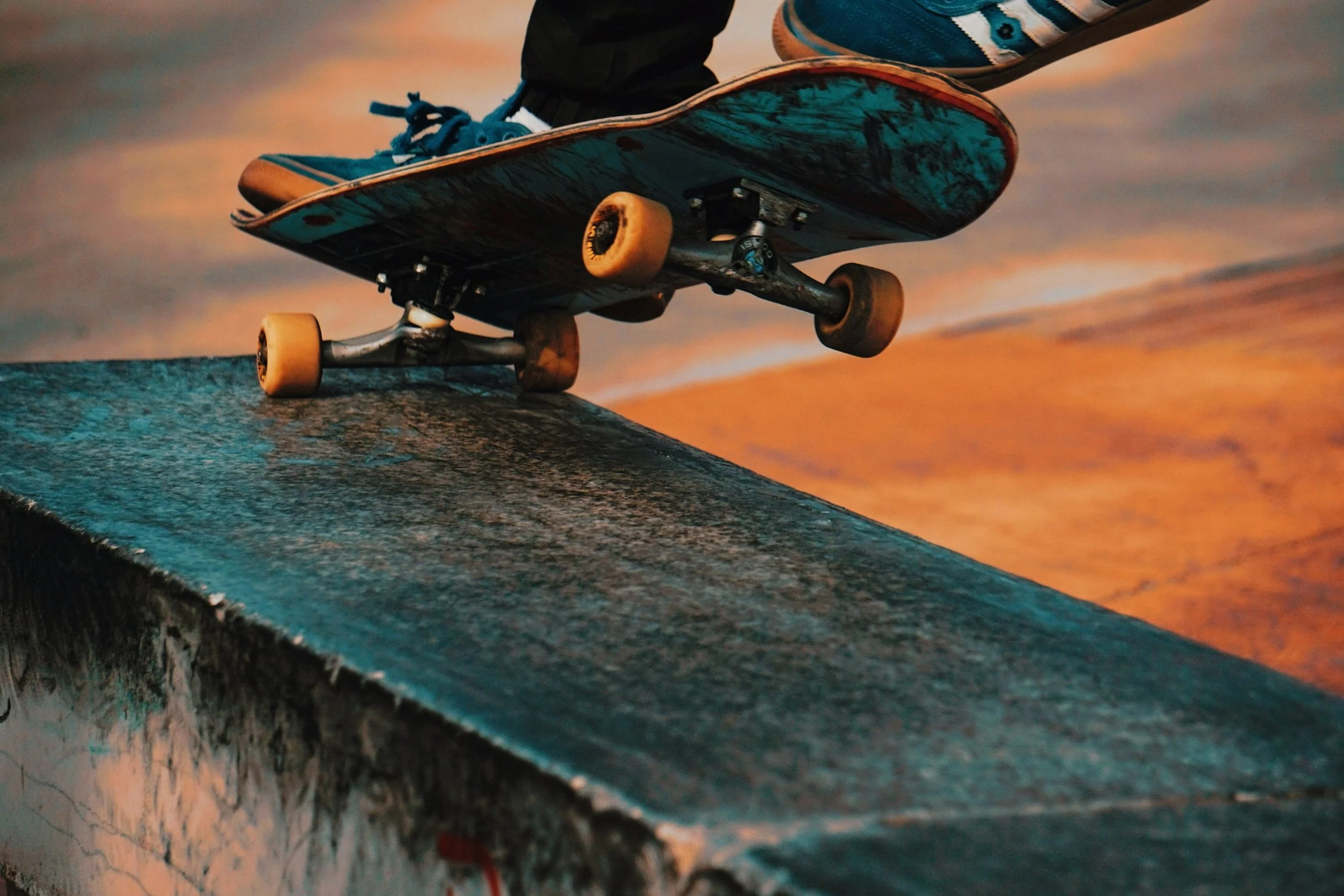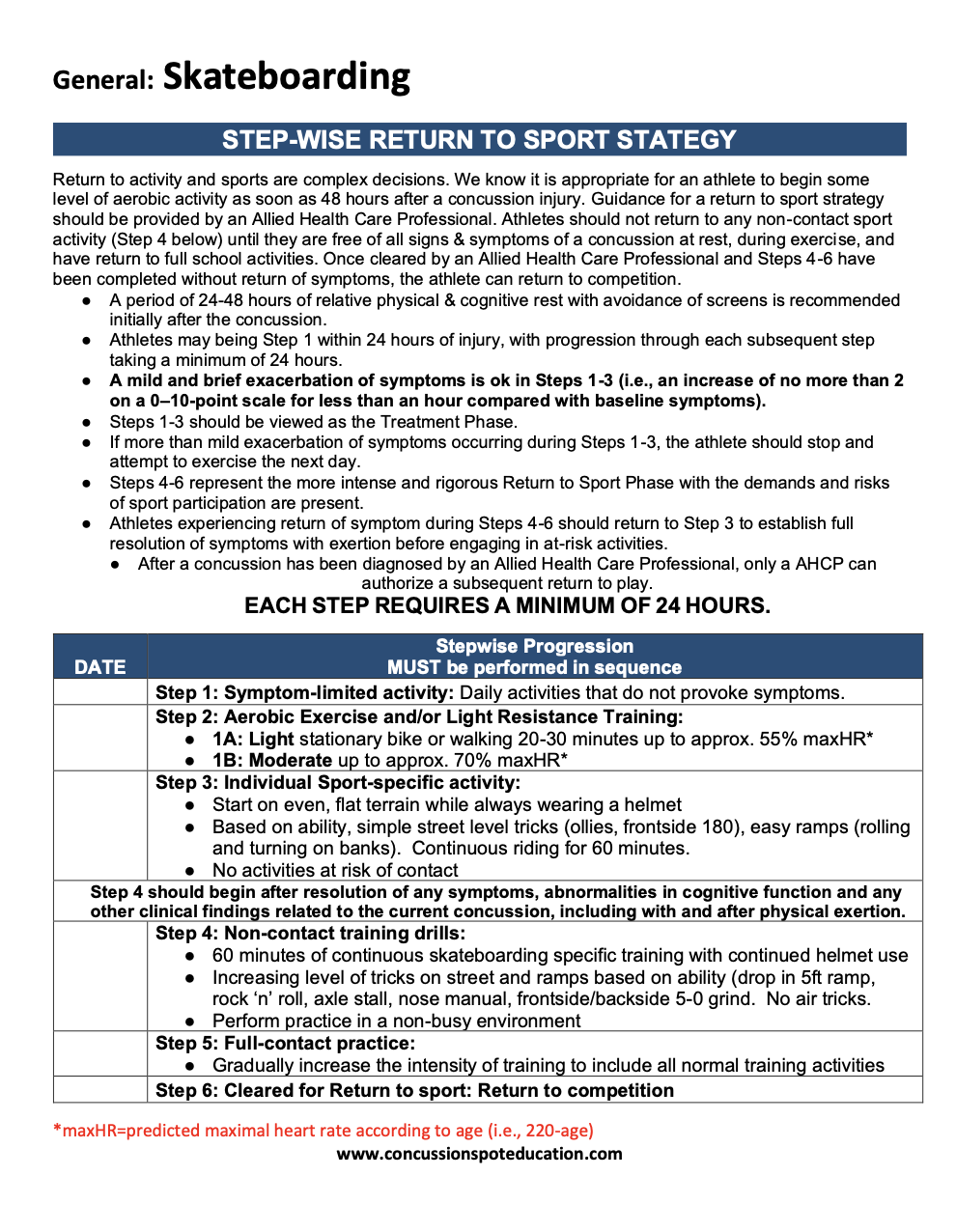

Skateboarding Concussion Return To Sport Protocol
The Skateboarding Concussion Return-to-Sport (RTS) Protocol is a sport-specific recovery guideline created to support a safe and effective return to skateboarding following a concussion. Unlike general recovery plans, this protocol considers the unique physical demands, risks, and environments involved in skateboarding—such as aerial tricks, balance-intensive movements, unpredictable surfaces, and the high potential for falls.
Designed with input from evidence-based concussion research and clinical rehabilitation strategies, the protocol outlines a structured six-phase progression. It helps skaters gradually rebuild their cognitive and physical function, while minimizing the risk of reinjury or symptom recurrence. Each stage targets specific aspects of recovery—from basic symptom tolerance to regaining full coordination and trick execution—allowing skateboarders to return to their sport with confidence and control.
The protocol begins with rest and light symptom-limited activity before introducing light aerobic movement. As recovery progresses, it incorporates dryland drills that mimic skateboarding mechanics, followed by controlled on-board riding and eventually full return to skatepark and street-level skating. Throughout the process, emphasis is placed on dynamic balance, reaction timing, and situational awareness—skills that are critical in skateboarding but often overlooked in standard concussion protocols.
Skaters must remain symptom-free for at least 24 hours at each stage before advancing. If symptoms return, the protocol recommends stepping back to the previous stage for further rest and reevaluation.
This RTS protocol is intended for use by healthcare professionals, coaches, and skateboarders themselves as a clear, sport-appropriate guide to concussion recovery. By addressing the unique challenges of the sport, the protocol provides a safer, more structured path back to full skateboarding performance while protecting long-term brain health.
The Skateboarding Concussion Return-to-Sport (RTS) Protocol is a sport-specific recovery guideline created to support a safe and effective return to skateboarding following a concussion. Unlike general recovery plans, this protocol considers the unique physical demands, risks, and environments involved in skateboarding—such as aerial tricks, balance-intensive movements, unpredictable surfaces, and the high potential for falls.
Designed with input from evidence-based concussion research and clinical rehabilitation strategies, the protocol outlines a structured six-phase progression. It helps skaters gradually rebuild their cognitive and physical function, while minimizing the risk of reinjury or symptom recurrence. Each stage targets specific aspects of recovery—from basic symptom tolerance to regaining full coordination and trick execution—allowing skateboarders to return to their sport with confidence and control.
The protocol begins with rest and light symptom-limited activity before introducing light aerobic movement. As recovery progresses, it incorporates dryland drills that mimic skateboarding mechanics, followed by controlled on-board riding and eventually full return to skatepark and street-level skating. Throughout the process, emphasis is placed on dynamic balance, reaction timing, and situational awareness—skills that are critical in skateboarding but often overlooked in standard concussion protocols.
Skaters must remain symptom-free for at least 24 hours at each stage before advancing. If symptoms return, the protocol recommends stepping back to the previous stage for further rest and reevaluation.
This RTS protocol is intended for use by healthcare professionals, coaches, and skateboarders themselves as a clear, sport-appropriate guide to concussion recovery. By addressing the unique challenges of the sport, the protocol provides a safer, more structured path back to full skateboarding performance while protecting long-term brain health.
